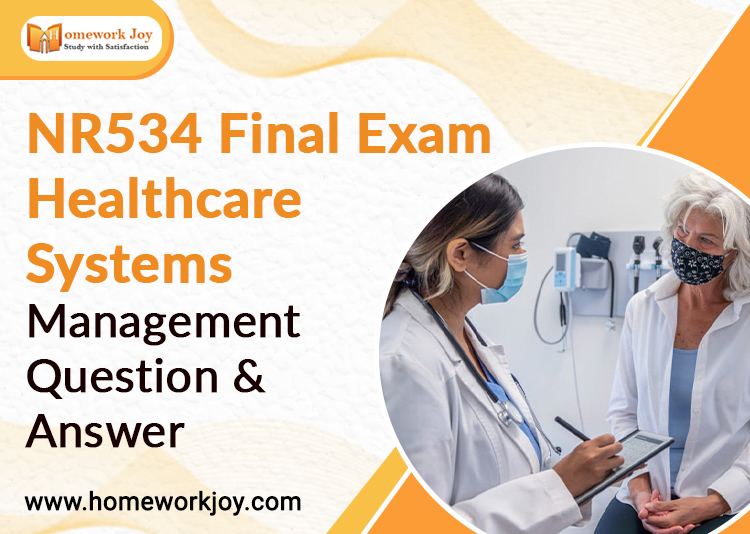Healthcare systems management is an essential aspect of the healthcare industry. It involves the planning, organizing, directing, and controlling of healthcare resources to ensure that patients receive quality care. The NR534 Final Exam in Healthcare Systems Management is designed to test your knowledge and understanding of healthcare systems management. In this blog post, we will cover the NR534 Final Exam Healthcare Systems Management question and answer.
Table:-
| Question | Answer |
| What are the four functions of management? | Click Here |
| What is the difference between a leader and a manager? | Click Here |
| What is the purpose of strategic planning? | Click Here |
| What is the purpose of performance management? | Click Here |
The above table covers some of the essential questions that you may encounter in the NR534 Final Exam in Healthcare Systems Management. It is important to have a good understanding of the different management functions and the purpose of strategic planning and performance management to ace this exam.
H2 Management Functions and Their Purpose
In this section, we will go over the different management functions and their purpose. A thorough understanding of the different management functions is crucial to answering the NR534 Final Exam Healthcare Systems Management questions correctly.
1. Planning
The planning function involves setting goals, objectives, and strategies for achieving organizational success. The purpose of planning is to ensure that resources are used effectively and efficiently to achieve the organization’s mission and vision.
2. Organizing
The organizing function involves arranging resources and activities to achieve organizational goals. The purpose of organizing is to ensure that resources are allocated effectively and efficiently to achieve the desired outcomes.
3. Directing
The directing function involves motivating and leading individuals and teams to achieve organizational goals. The purpose of directing is to ensure that individuals and teams are aligned with the organization’s mission and vision and are working towards the same goals.
4. Controlling
The controlling function involves monitoring and evaluating performance to ensure that goals are achieved. The purpose of controlling is to identify areas for improvement and to take corrective action when necessary.
Strategic Planning and Performance Management
In this section, we will go over the purpose of strategic planning and performance management. These are essential aspects of healthcare systems management that you may encounter in the NR534 Final Exam Healthcare Systems Management.
1. Strategic Planning
The purpose of strategic planning is to set long-term goals and objectives and to determine how to achieve them. Strategic planning involves analyzing the external environment and the internal resources of the organization to develop a plan for achieving the organization’s mission and vision. It is essential to have a good understanding of strategic planning to ensure that healthcare organizations are aligned with the healthcare industry’s evolving trends and demands.
2. Performance Management
The purpose of performance management is to monitor and improve the performance of individuals and teams. Performance management involves setting goals, providing feedback, evaluating performance, and taking corrective action when necessary. It is essential to have a good understanding of performance management to ensure that healthcare organizations can improve their quality of care and patient outcomes.
Conclusion
Healthcare Systems Management is a crucial and complex field that requires a deep understanding of healthcare operations, policies, regulations, and financial management. Through this exam, you have demonstrated your knowledge and competency in these areas. However, it is important to continue expanding your knowledge and skills to stay current with the constantly evolving healthcare landscape. I encourage you to seek out opportunities for further education and professional development.
